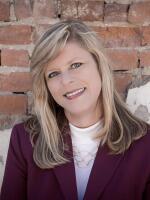Gov. Mike DeWine is strengthening Ohio's face mask orders, which could result in the closure of businesses that don’t enforce the wearing of masks by employees and customers. Next week, the state will look into possibly closing bars, restaurants and fitness centers if COVID-19 cases continue to rise.
Ohio’s strengthened mask order will include new provisions, including that businesses have to post a sign requiring a face mask at all entrances. Stores will be responsible for ensuring all employees and customers are wearing face mask at all times.
To enforce the order, DeWine said the state is creating a Retail Compliance Unit lead by Ohio Bureau of Workers Compensation agents, who will inspect businesses to ensure the new guidelines are being followed.
The first violation will result in a written warning and a second violation will result in the closure of a store for up to 24 hours.
"I am very well aware of the burden this will place on employees and the owners," DeWine said. "But these are places where it is difficult or impossible to maintain mask-wearing, which we know now is the chief way of slowing this virus."
The governor said if the current trend of rising COVID-19 cases continues, the state will be forced to close bars, restaurants and fitness centers again. DeWine said they will look into this decision on Thursday, November 19.
DeWine said a new order will place additional restrictions on weddings, funerals, post-funeral gatherings and other social gatherings. Open congregate areas will no longer be allowed at gatherings and the order prohibits dancing and games. The order also requires everyone to be seated and wear a mask unless they are consuming food or drinks.
The governor announced the new measures during a statewide address on Wednesday evening as COVID-19 cases and hospitalizations surge in Ohio. Hospitals statewide are at 75% capacity, and the same goes for the ICU.
DeWine noted hospitals are functioning now as if they were at the peak of flu season in January, but these new cases are not trending down. He said that's taking an enormous toll on health care workers.
"They have been running a marathon for nine months straight, and with this new wave and the onset of flu season, it’s like they are starting the race all over again," DeWine said.
DeWine also noted that many colleges and universities are wrapping up their first semesters with remote learning. He said that unless the spread slows dramatically, "higher education institutions may have to remain virtual when school opens in January."
Copyright 2020 WOSU 89.7 NPR News






